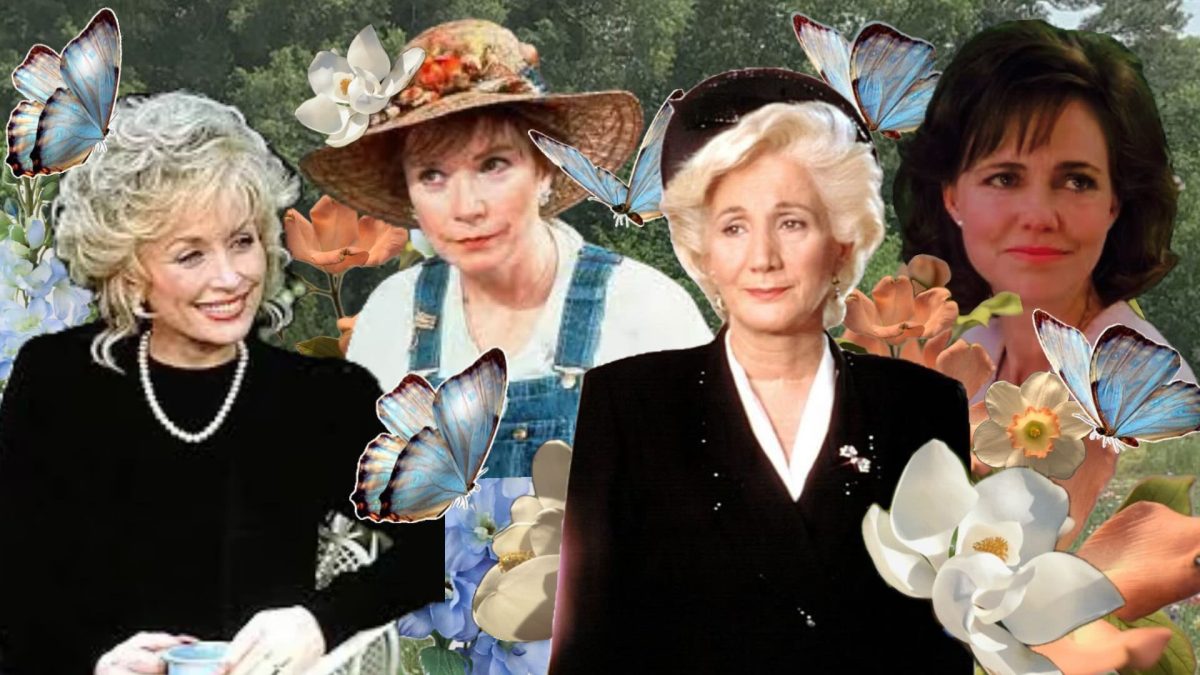I like all sorts of movies. I know my “Star Wars” lore. I have seen all of the “Indiana Jones” and “Jurassic Park” films. I try to watch the latest movies regardless of genre, and I am not ashamed to admit that I have loved many popular chick-flicks over the years as well.
While I enjoy the occasional chick-flick on a girls’ night in or a cozy Sunday afternoon, I do not believe that all chick-flicks are made equally.
In fact, the release of the “Mean Girls” remake Jan. 8 reminded me just how little I like the original film. I know lots of people praise “Mean Girls.” Some dress up in the skimpy Santa outfits for the holidays. Others listen to the Broadway soundtrack and craft their own burn books.
While I can acknowledge the franchise’s popularity and even admire its attempt to expose teenage cruelty as a retelling of “Julius Caesar,” I just think the story glorifies the “mean girl” persona more than anything. Most people want to be Regina George more than they want the bullying and backstabbing to end.
On the other hand, I believe that many older chick-flicks have more substantial messages about life, love and friendship that make them worth rewatching over and over again. Newer chick-flicks like “Mean Girls” sometimes sacrifice the substance – the lessons about growing up and changing – for the sake of creating shallow entertainment.
Regina’s reign is much more entertaining than Cady’s confession, making it what people remember about the film, but I do not think older films inspire such admiration for the antagonists who should concern viewers instead.
I must also point out that watching older films gives people a comforting sense of nostalgia. The storylines feel familiar. Many of John Hughes’ films, some of the most well known chick-flicks from the 1980s, follow a pattern that you learn to expect.
The viewer hopes that the heroine will overcome her bullies and her self-confidence issues and that she will finally win the heart of the love interest and achieve her career goals.
The plot may be simple, but I often think that we should have straightforward reminders about the importance of perseverance, compassion and personal growth. You can call me sappy, but I want my chick-flick to have a simple, happy ending that simply makes me happy.
For example, the sense of camaraderie in many classic chick-flicks makes me happy. While the “mean girl” trope does not encourage a sense of belonging, classic chick-flicks usually feature strong friendships. Instead of watching women tear each other down, I would rather watch women build each other up like in the 1989 film “Steel Magnolias.”
Set in a small town in Louisiana, “Steel Magnolias” follows six Southern women who experience both heartbreaks and joys together as the seasons change and life goes on. They meet at a beauty shop to primp and preen, but they also go there to fellowship with friends who offer stimulating company and solace alike depending on the need.
I will note that you will laugh at Ouiser and the bleeding armadillo groom’s cake, but you will cry during M’Lynn’s powerful speech at the end, too. The film has plenty of gossip and funny quips, balancing the tragedy with humor – the bad with the good.
As the famous film critic Roger Ebert said in his review of the movie, “The principal pleasure of the movie is in the ensemble work of the actresses, as they trade one-liners and zingers and stick together and dish the dirt.” The actresses Dolly Parton, Julia Roberts, Shirley Maclaine and Sally Field certainly show off. Roberts and Field even won Golden Globe Awards for their performances.
Another classic film “Pretty in Pink,” made in 1986 and written by John Hughes, provides a powerful message about embracing individuality. The protagonist Andie Walsh, played by Molly Ringwald, endures brutal teasing because of her poor background and eclectic ensembles.
When she starts dating the wealthy Blane McDonagh, the entire high-school seems to rise against them. Andie learns to value her friendships with characters like Duckie and Iona. She loves Blane despite the hardships and class differences, and she stands up for herself in ways that Cady Heron could never dream of.
I would watch the film again just to admire Andie’s outfits, but I admire her pluck and kindness too.
Lastly, I cannot write about classic chick-flicks and not include the 1987 film “Dirty Dancing.” Set in 1963, Jennifer Grey’s Frances Houseman, nicknamed Baby, vacations with her family at a resort in the Catskills, but she soon finds herself enthralled with the dancing and lifestyle of the staff.
She meets the dance instructor Johnny, played by Patrick Swayze, and falls in love. She makes mistakes, but she grows up and learns to interact with people outside of the circle of her father’s wealthy friends whom she worshiped at the beginning.
The film’s message and soundtrack have made it popular for decades. Brian Truitt of USA TODAY wrote about the film just two years ago for the film’s 35th anniversary. He said, “Nobody puts Baby in a corner, and no one better disrespect the ‘Dirty Dancing’ soundtrack.”
While some people may consider older films outdated and unrelatable, the nostalgic reminders to cherish friends and family in movies like “Steel Magnolias,” “Pretty in Pink” and “Dirty Dancing” make them chick-flicks that have stood the test of time. Classic movies should still be watched, enjoyed and revered.




























































































